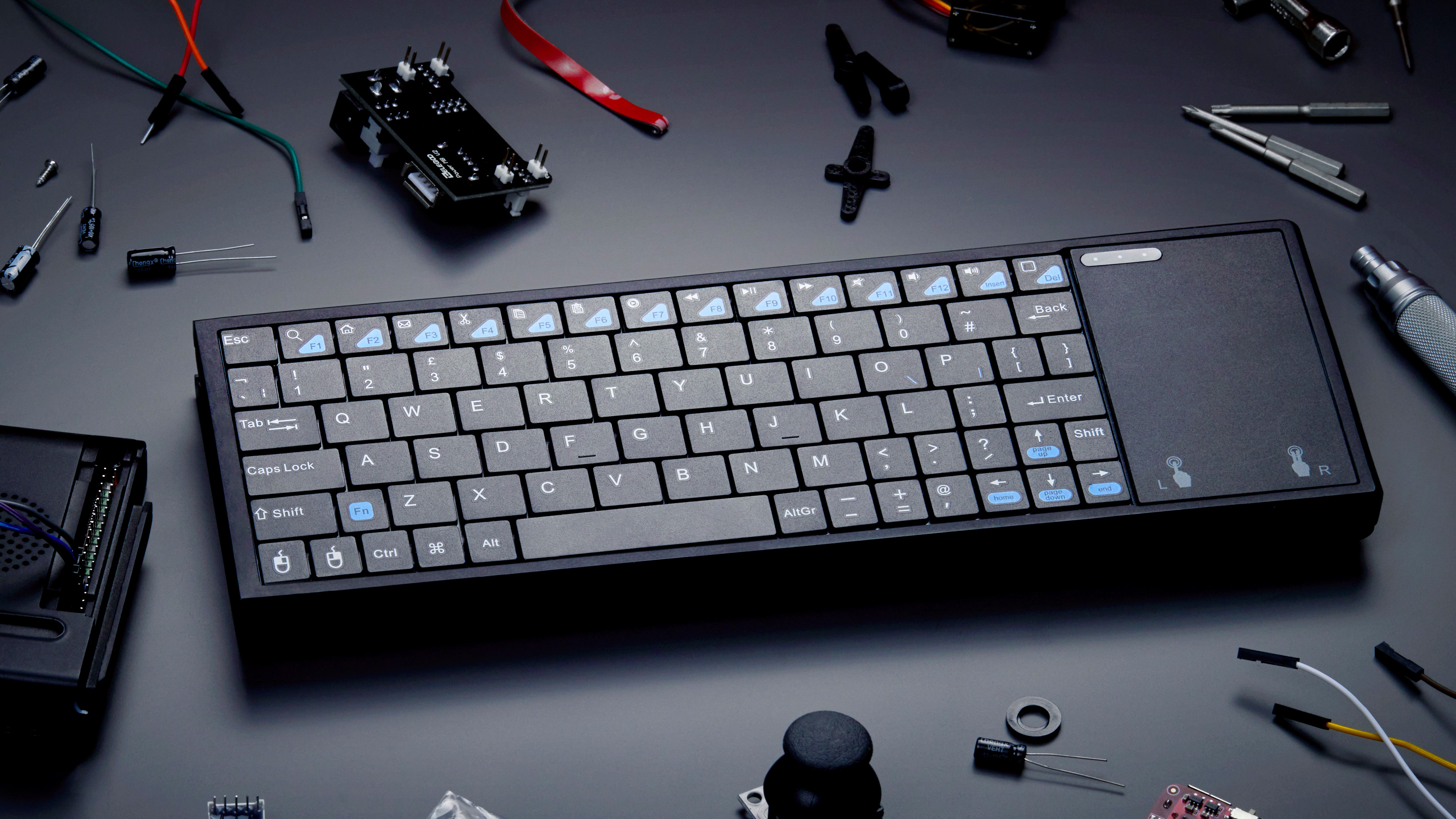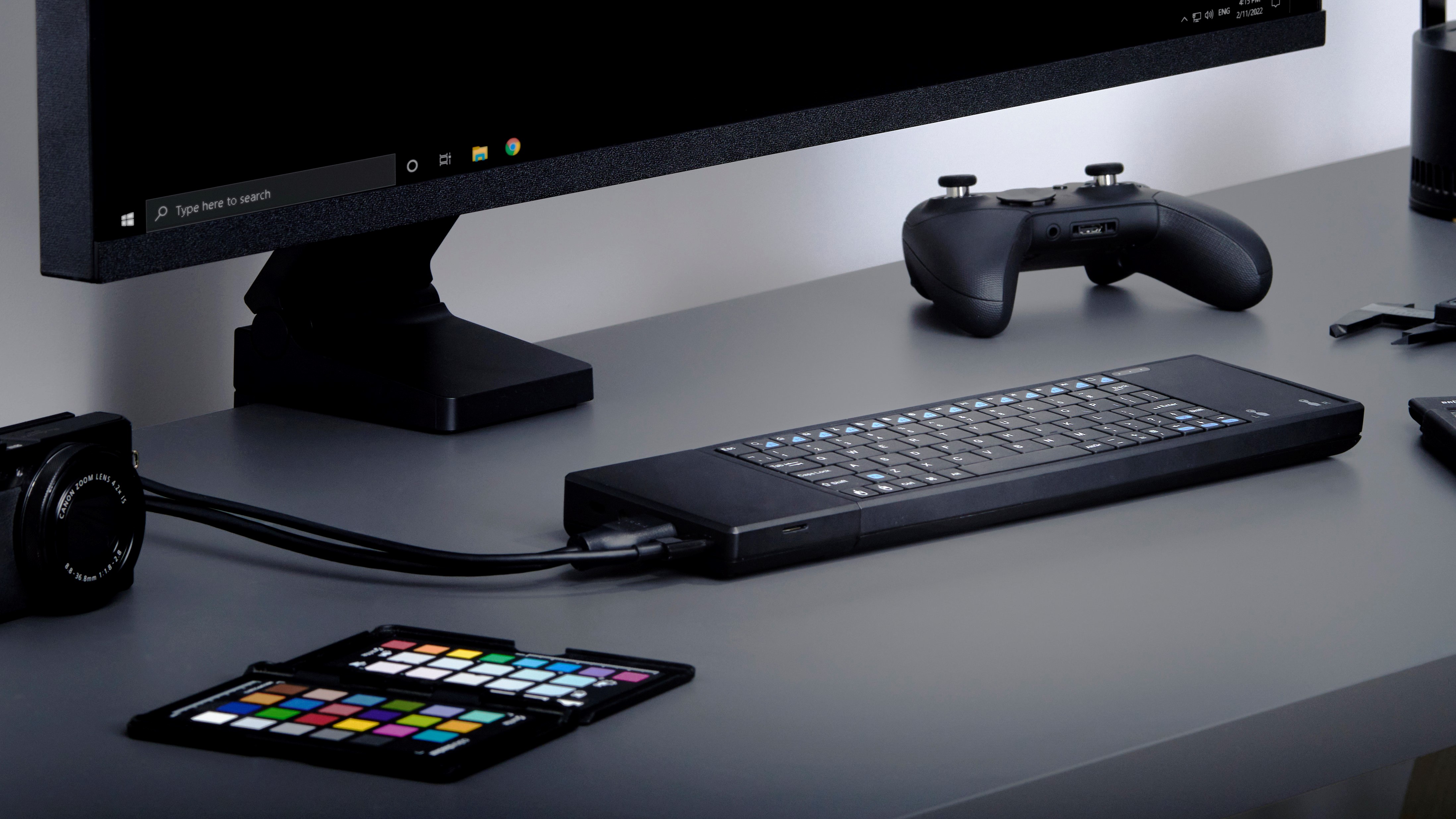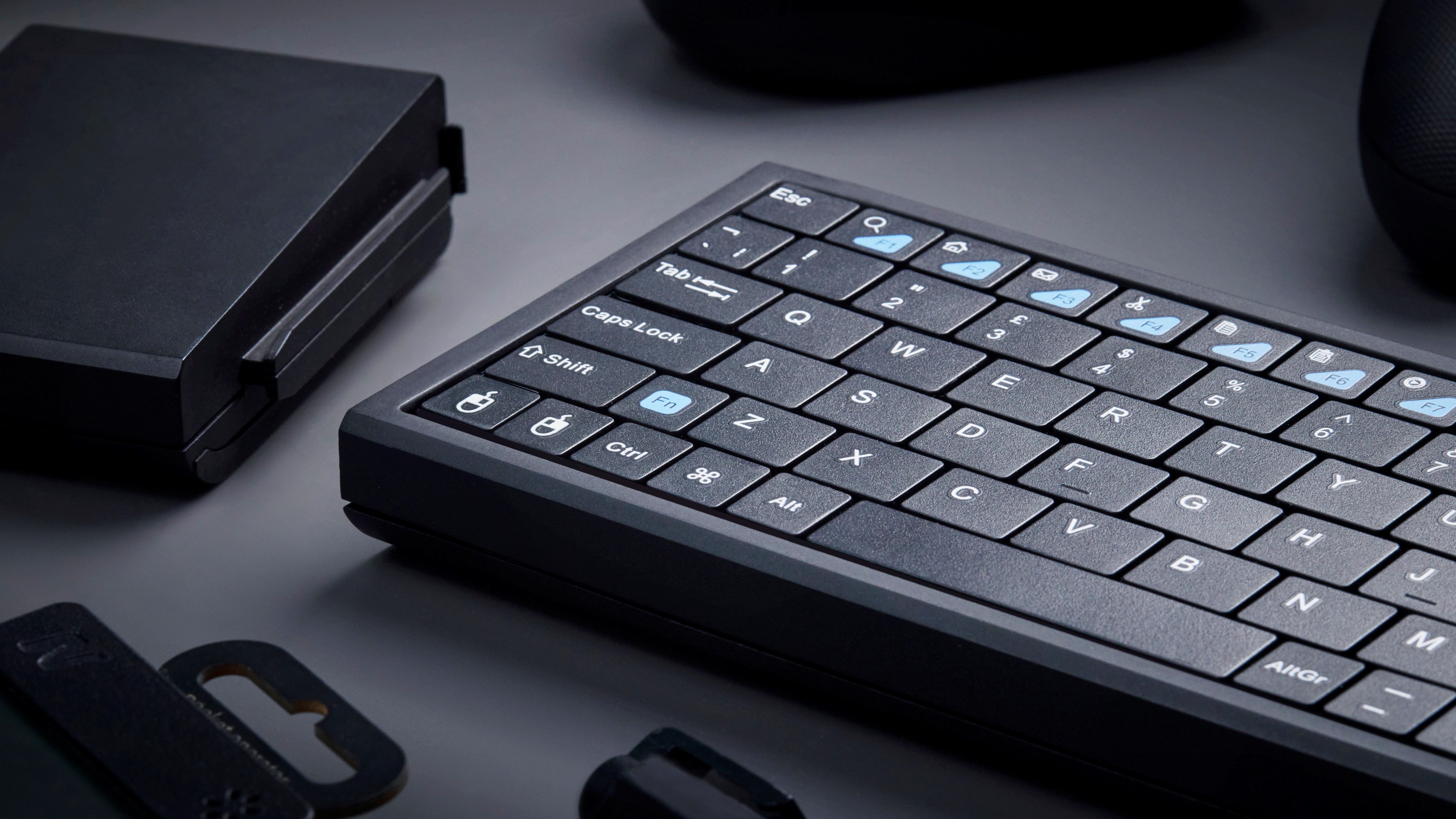What if your laptop was a keyboard? Pentaform envisions a new future for portable PCs
The Abacus was created to help battle electronic waste

Sign up for breaking news, reviews, opinion, top tech deals, and more.
You are now subscribed
Your newsletter sign-up was successful
London-based tech startup Pentaform has, it seems, struck gold. Its ‘Abacus’ compact PC was officially revealed earlier this year at CES, and when the Kickstarter for funding opened in July, the £35,000 goal was smashed in under two hours. A few months later and the Kickstarter is at almost ten times the original goal, with Pentaform now pushing to deliver the product to markets in developing countries.
The Abacus is a pretty ingenious bit of hardware; a compact keyboard with the touchpad to the right and a removable block to the left, the latter of which contains a quad-core Intel Atom Z8350 processor, which is typically found in ultra-compact PCs like this.
The removable ‘computer module’ features Wi-Fi and Bluetooth connectivity along with physical ports for you to plug it into any monitor and get straight to work. Windows 10 comes pre-installed, and it’s Linux-compatible too. It’s not exactly a high-powered machine, but it’s pretty capable considering its size. Three different models are available with a variety of specs.

Opinion: This sort of tech should become more common
Let’s face it: screens are everywhere. Whether it’s a smart TV, a gaming monitor, or even just a tablet display, we live in a world of screens. It’s starting to feel like we’re approaching a point where we don’t need more screens; I’ve got a screen in every room of my house (well, except the bathroom) at this point.
What that boils down to, ultimately, is a great deal of electronic waste. All of those displays will eventually need replacing. And how often do I take my screen out with me? I go over to a friend’s house, which is also filled with screens, and I bring my laptop, adding to the screen count.
With the Abacus, I could plug into any display in my friend’s home and do whatever I want. If screens are commonplace, shouldn’t portable systems that can easily connect to those screens become the norm? If I split my work time between home and the office, wouldn’t it be easier to bring this pocket-friendly unit along with me and just plug it into one of the many monitors at TechRadar HQ?

I think this sort of product should be more popular, personally. Pentaform’s commitment to eco-friendly attitudes — the Abacus is made from 100% recycled ABS plastic and has extremely low power consumption — is something that the computer hardware industry could really use more of. The only good example that springs to mind is Acer’s Aspire Vero laptop.
Sign up for breaking news, reviews, opinion, top tech deals, and more.
The potential Abacus holds to bring computing to deprived communities is also vital. It’s cheap — the base model costs $150 — and it doesn’t require anything more than a display and a small amount of power. Pentaform holds the view that in the information age, access to a computer should be considered a human right; to back up their claim, if the still-rising Kickstarter reaches $500,000 (it’s currently at about $400,000), they plan to build a new computer lab for a high school in Bali, Indonesia near the factory producing the Abacus units.
We, as a society, are not pushing back enough against electrical waste. Whether it’s cheap tablets for kids that get thrown away once they’re outgrown or disposable single-use vape pens, we’re creating a massive problem for ourselves. Pentaform’s team wants to push back against that, and I admire them for it. I can’t wait to check out the Abacus for myself.

Christian is TechRadar’s UK-based Computing Editor. He came to us from Maximum PC magazine, where he fell in love with computer hardware and building PCs. He was a regular fixture amongst our freelance review team before making the jump to TechRadar, and can usually be found drooling over the latest high-end graphics card or gaming laptop before looking at his bank account balance and crying.
Christian is a keen campaigner for LGBTQ+ rights and the owner of a charming rescue dog named Lucy, having adopted her after he beat cancer in 2021. She keeps him fit and healthy through a combination of face-licking and long walks, and only occasionally barks at him to demand treats when he’s trying to work from home.